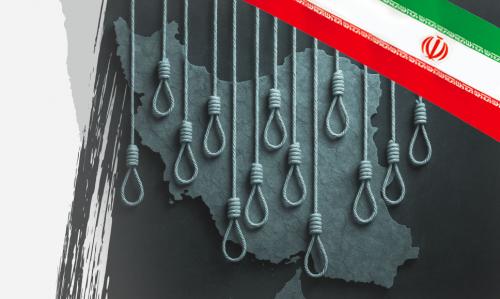07 January 2008 :
This useless overflowing of torture, which has yet to better mankind, has pressed me to question whether death is truly useful and just in a well-organized government. What could give men the right to slaughter their similars? Certainly not that which results from sovereignty and lawfulness. These are no more than the sum-total of a minimal portion of the personal freedoms of everyone; they represent the general will, which is an aggregate of its particulars. Who was it that bestowed the power of death upon the judgement of others? How is it that in the small sacrifices of liberty made by all, rests the greatest of all possessions, life itself?On Crimes and Punishments by Cesare Beccaria, 1764
The Italians – they embody these considerations of Cesare Beccaria – they understood before others the civic and moral value of the battle against capital punishment. Our country has the merit, since 1994, and thanks to all the successive Italian governments that followed suit, to have guided the struggle against the death penalty worldwide, gathering for our proposal of a universal moratorium the support of public opinion, an extraordinary convergence of majority and opposition political forces in Parliament and, in the years that followed, the growing support of countries from every continent. With the abolition of the death penalty from our Military’s penal code in 1994, Italy not only erased the last remaining legacy of capital punishment from our domestic policy, but set a tone that has made our country in the most concrete terms, a champion in the cause of abolishing the death penalty on the stage of international politics and in the view of those countries still maintaining the practice.
A Resolution for a moratorium was presented for the first time at the United Nations General Assembly already in 1994. Although it failed to pass (by only 8 votes!), this did not deter the United Nations Commission on Human Rights, three years later on the initiative of the Italian Government which I headed at the time, to approve by a majority vote a resolution that called for “a moratorium on capital executions in view of the complete abolition of the death penalty.” With that, for the first time, an organ of the United Nations established that the question of the death penalty fell within the sphere of human rights and that its abolition constituted “a reinforcement of human dignity and a progress in fundamental human rights.” Since then, for nine years, the Resolution has been approved without fail in Geneva and, also thanks to this, the situation regarding the death penalty has seen sweeping changes with its abolition and established moratoriums all over the world which have spared thousands from the gallows.
During these years, Italy has made its contrary views of the death penalty felt by those countries which continue the executions as well. On June 25th 1996, in a historical ruling, the Constitutional Court of our country placed a prohibition on the extradition to countries maintaining the death penalty of all those who would risk a sentence of death, whether Italian or foreign national, who reside or live in our territory. A country which has totally abolished the death penalty, reasoned the Court, cannot cooperate in its application anywhere in the world.
The time has arrived to take the decisive step towards finally realizing our initiative: the universal moratorium on executions. The commitment on my part and the part of the Government to this moratorium is active and unyielding, grounded, as well, in the decisive mobilization of the Italian Parliament. I requested the efforts of all European countries in bringing this issue to the United Nations General Assembly. In the last months, we have been actively engaged in Brussels and at the international level and our proposal finds us leading the charge in a battle for civilization. For this, I am particularly satisfied by the decision of June 18th by the European Union to present, as an inter-regional alliance, the resolution for a moratorium on executions at the opening of the next United Nations General Assembly. This was a great success for Italy and the organizations, that never gave up the fight, of Parliament and of the Government. I believe it necessary to thank Minister Massimo D’Alema for insisting on the need to our European partners of proceeding as quickly as possible with concrete measures in this battle for civilization which has seen Italy involved at the front.
Italy and Europe are not alone. Many countries from around the world have since decided to support our initiative. In January of last year, speaking at a meeting of the African Union in Addis Ababa, I made an appeal to African leaders to work together on the universal moratorium. I find Africa’s commitment particularly extraordinary: South Africa, Mozambique, Angola, Senegal, but also countries like Liberia, the Democratic Republic of Congo and Rwanda, which in their recent history have known gross violations of international human rights, have joined our global campaign. With this, Africa demonstrates its desire to no longer be the land of coup d’etats, summary executions and capital punishment, but, instead, to be capable of sending to the world a message of non-violence and humanity. The conferment of “The Abolitionist of the Year” Award by Hands Off Cain on President Paul Kagame recognizes the immense symbolic value, beyond law and politics, of the abolition of the death penalty in Rwanda, a land where the perpetual cycle of vengeance and the eternal struggle of Cain and Abel was seen in all its tragic immediacy. The example of Rwanda and other African countries torn apart by violence, often between brothers, points the way to the end of the death penalty in the world. Asking for the abolition tout court of the death penalty in countries undergoing states of emergency, conflict on an international scale, or just recovering from civil war would be a mere petition of principle. A universal moratorium put forth by the United Nations, however, would be a practical and effective remedy to this scourge.
Reaching the objective of a moratorium will have enormous political significance. A decision in favour of the moratorium in view of abolishing the death penalty on the part of a body largely representative of the International Community, even if only by a majority, will have the indisputable effect of consolidating world opinion towards the necessity of banning capital punishment, thus contributing to the development of human rights as a whole. The voices have been many and influential in Italy and the world that have been raised in this fight for civilization. For this, I would also like to thank the Nobel Prize winners and prestigious international figures that, in the last months, through their personal appeals to me, have supported the Government in following through on this initiative, and all the members of the Radical Party and Hands Off Cain, beginning with Marco Pannella, that have ceaselessly continued their non-violent struggle towards this goal in testimony to an incredible political and social commitment.
Romano Prodi
President of the Italian Council of Ministers








